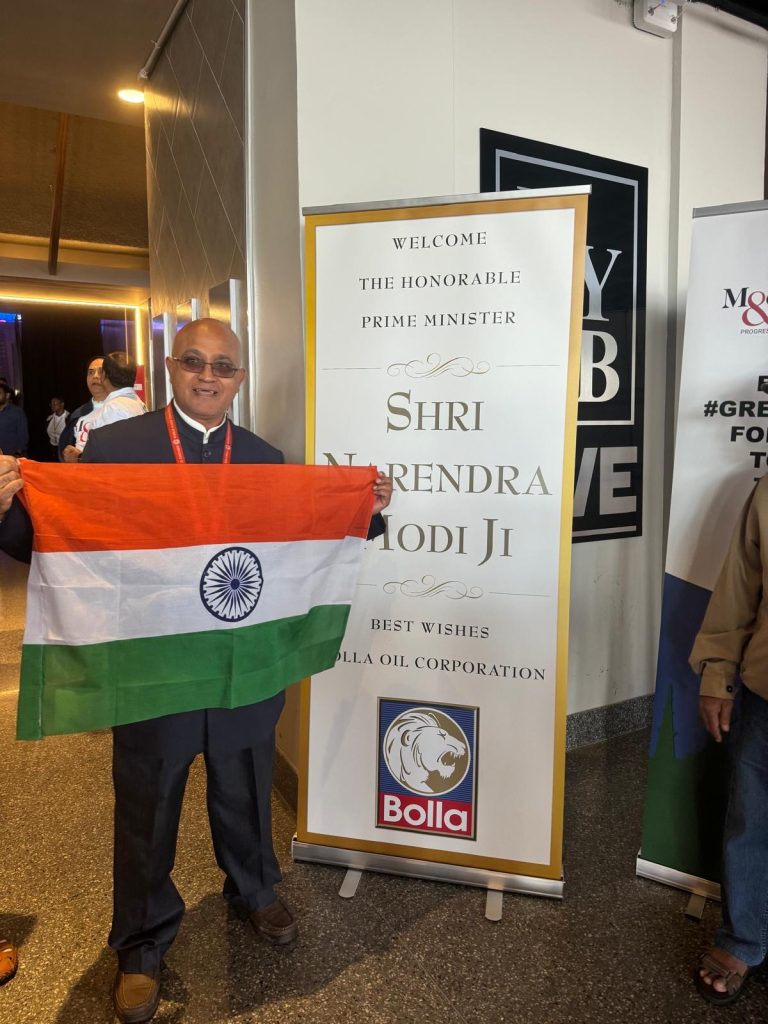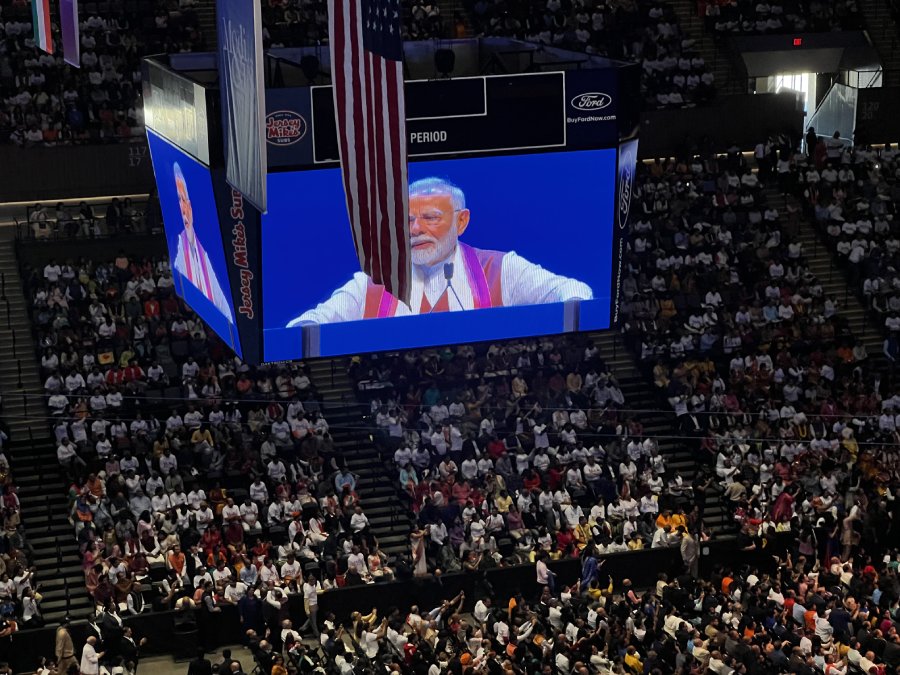Shri Narendra Modi has had a lifelong history of engaging the Indian diaspora in India and overseas. This tradition or practice should continue when the Prime Minister visits Guyana in late November.
Modi-ji engaged the diaspora when he was not a politician meeting visiting Indians in Delhi and elsewhere in India. He did so as a student (1970s) engaging Shri Raviji-Maharaj and Indrani Rampersad of Trinidad and Swami Aksharananda of Guyana in Delhi and in Benaras as well as Indians from other countries when they were in India. He did so as a pracharak (RSS volunteer) in 1980s and 1990s serving others as has been part of his upbringing and Hindu culture as the work of the RSS. He did so as assistant to BJP leader LK Advani (1990s), as General Secretary of BJP (1998-2001), as Chief Minister (2001-14), and as Prime Minister (from 2014). He did so in private visits in New York and New Jersey. He did so at international Hindu and diaspora conferences in New York, New Jersey, Washington, Trinidad, and in his private visit to Guyana (2000). He and Ravi Dev sat at the same dais in the same panel in Washington discussing issues relating to Hindus. He and Dr Vijay Naraynsingh held discussions in Washington and Trinidad. He engaged Swami Aksharnanda and Ravi and met other Guyanese including me in Trinidad and Guyana.
In all of his global conferences in USA and in Trinidad and his visit to Guyana, he engaged Indo-Caribbean people. He yearned to know about their experience in the adopted countries. Modi has cherished mingling with and engaging diaspora people, and in fact he has always looked forward for those experiences. He is yet to turn down a public engagement with the diaspora in all of his travels. Meeting the diaspora has energized him. He expressed how pleased he was when he traveled abroad and had seen Indian culture (soft power) being embraced in other countries. He has lauded foreigners for embracing Indian culture and the diaspora for maintain their ancestral culture and links to the motherland.

The Indian PM is also known to extol the great work of the diaspora in strengthening relations between India and the adopted or host country and for their contributions to the development of the host country. He often refers to the Indian diaspora as “Rashtradoot” (ambassadors of India). He always praised their “unmatched” skill, talent, work ethic, investment in, and contributions to their adapted countries and their abiding commitment to Mother India. Indians have made significant contributions to the territories wherever they have settled.
India culture or soft power has taken the globe by storm. Indian culture is institutionalized in several Caribbean countries in the Caribbean. But Modi is yet to visit Caribbean countries (as PM) that experienced indentureship. A visit to Guyana is being finalized as the PM travels to Rio for the G20 Summit in November (18, 19). Caribbean people are looking forward for a visit that is long overdue. He was to visit Trinidad and Guyana in 2018 returning from the G20 Argentina Summit but it was cancelled at the last minute. Guyana will play host for the November visit possibly jointly with Suriname and other Caribbean nations.
It will be an honor to have a public diaspora program for the visiting PM to showcase, to the 1.4 billion Indians in India and the 35 million in the diaspora, Guyanese and Caribbean hospitality and culture that we retained during 186 years connection with India in spite of a distance of some 10K miles.
Modi’s fever is being echoed in the Caribbean air and in the Indian Guyanese diaspora as they eagerly looks forward for Prime Minister Modi’s much-anticipated visit. The last visit by a Prime Minister from India was Indira Gandhi in October 1968, over 56 years ago.
As was done in every country with an Indian diaspora, community organizations should come together and plan a public program for the PM to demonstrate the culture (songs, dance, music, poetry, etc.) that we have retained (and adapted) from the ancestral homeland 186 years after the first contact in May 1838. A public program or outreach with the Indian Caribbean diaspora at which all (regardless of ethnicity) are invited locally and around the region will add to the elegance and tradition of the PM’s visit. Such a program will carry give impetus towards furthering ties with the Caribbean especially towards investment and towards cooperation in development. A diaspora program will continue a signature act whenever he visited another country as a part of India’s foreign policy.
The Modi visit and a diaspora program will be testament of a renewed commitment by New Delhi to bridging the gap between the potential and reality of Delhi’s reach in the Caribbean, boosting prospect of soft power and political influence.
